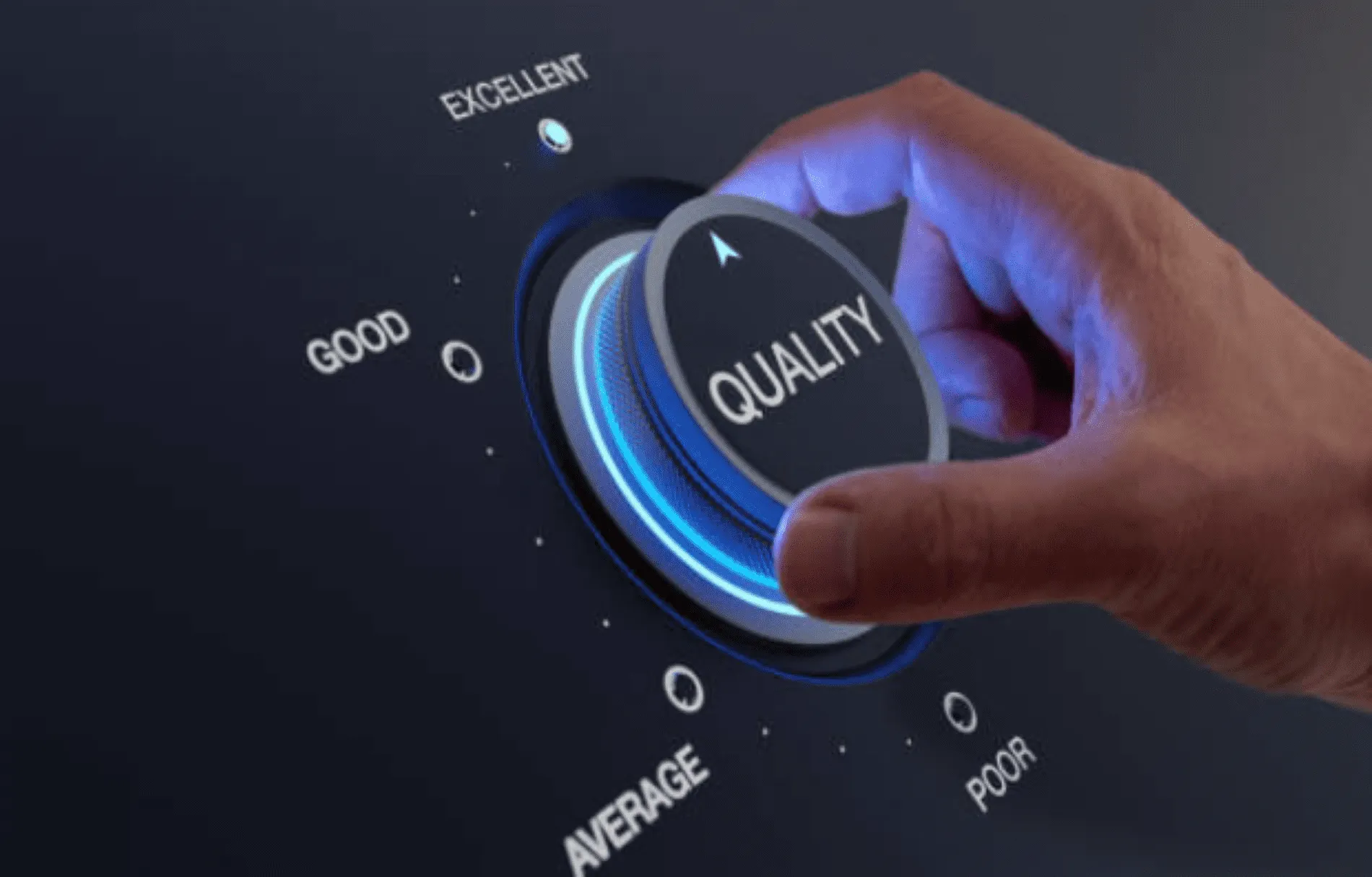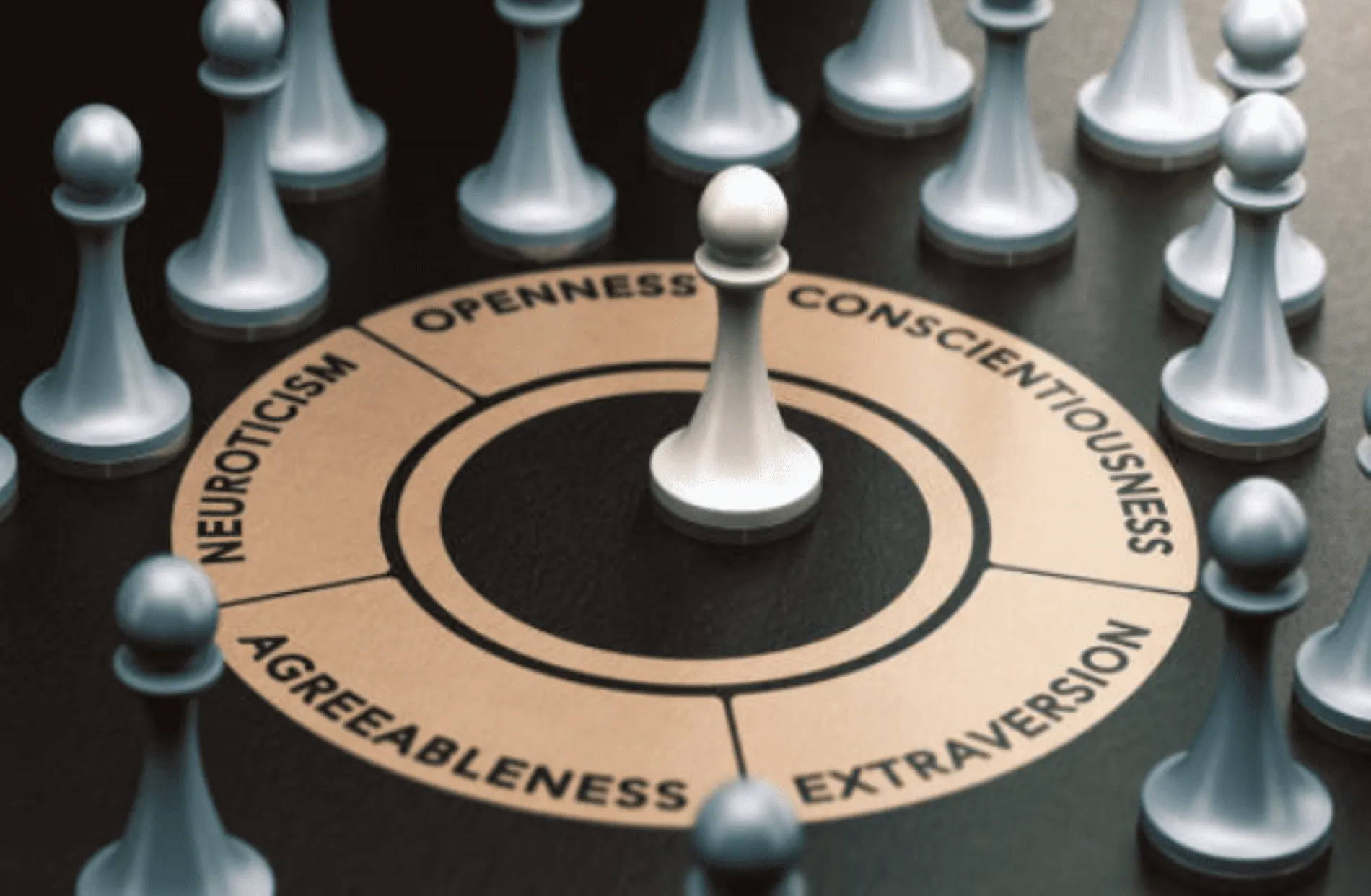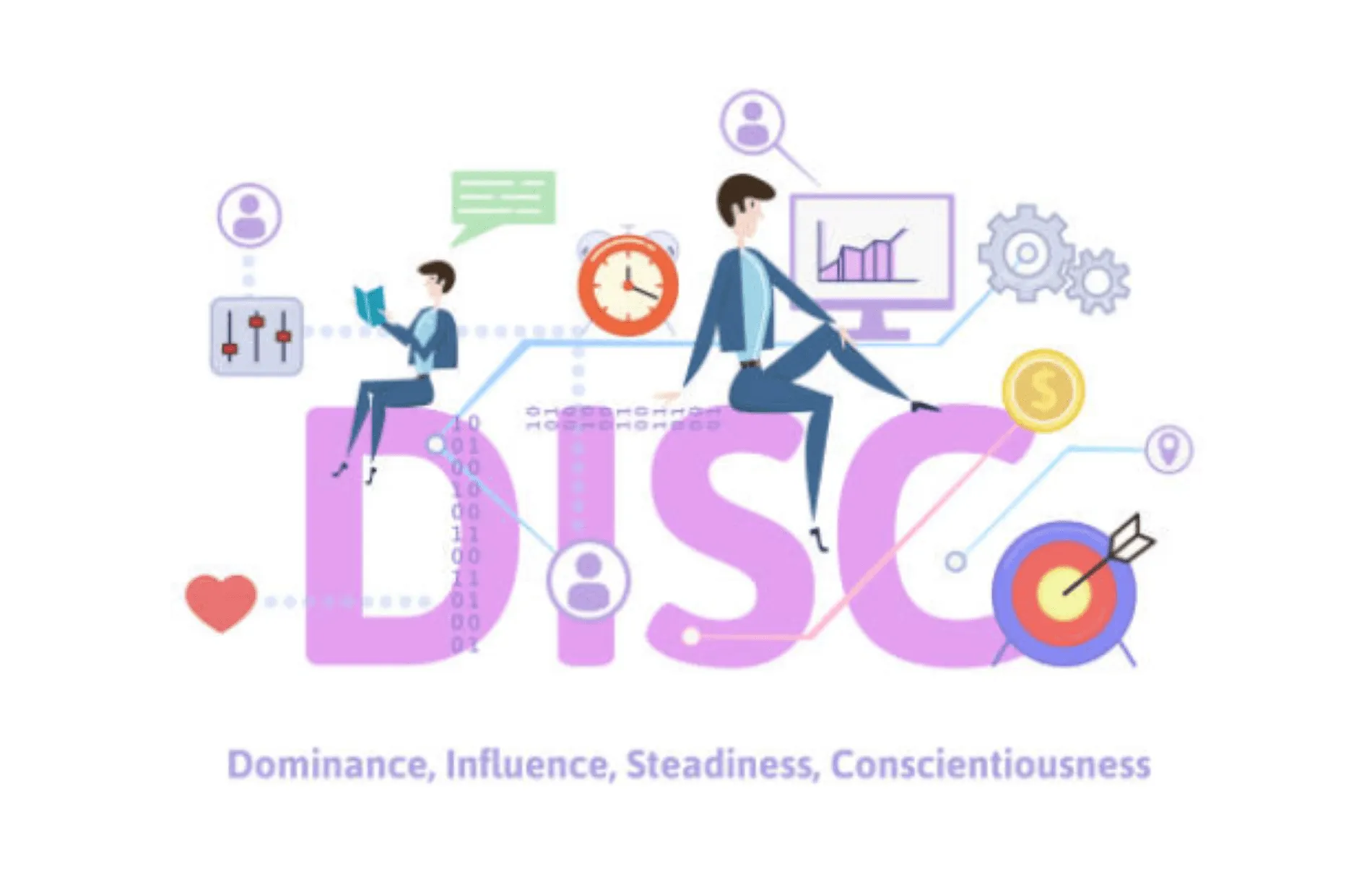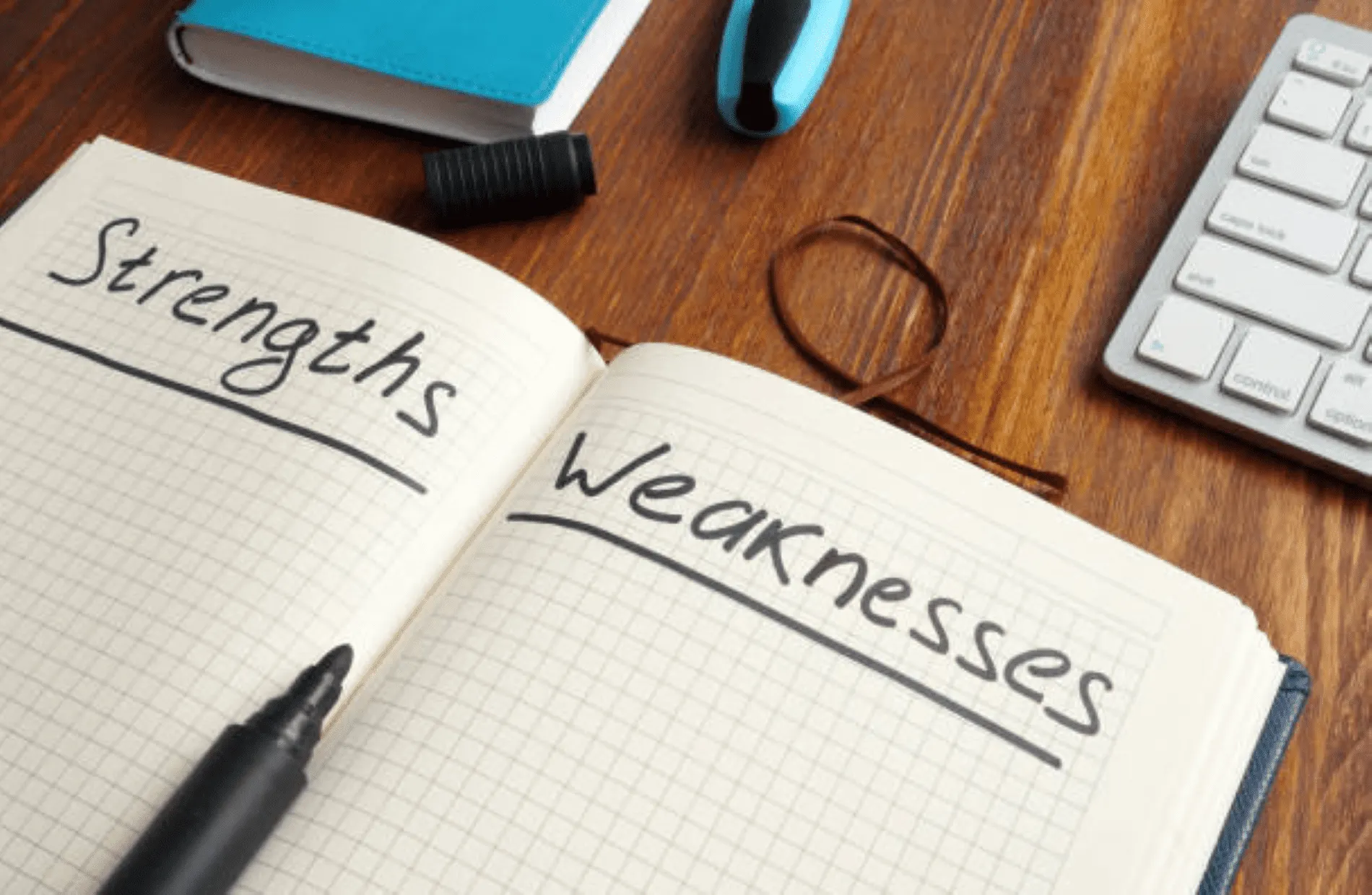Behavioral Assessment For "Perfect" Job Matches

Author: Tyesia Hunter
Understanding the Importance of Job Fit
In the bustling world of recruiting, hiring managers and human resource professionals are no longer just relying on resumes and interviews to identify the best candidates. In fact, one might argue that a significant part of the equation is understanding how well a candidate fits within a specific job role.
This is where job fit comes into play, it’s about matching an individual's abilities, personality traits, and interests with the demands and rewards of a particular job. It's about finding that sweet spot where their skills meet their passion.
Hiring isn't just about filling an open position anymore. Instead, it's about strategically placing individuals in roles where they will excel—where they will feel motivated, satisfied, and capable.
This concept goes beyond looking at education or experience alone; it involves assessing individual behaviors to predict how someone will perform in certain situations or react to specific tasks. The use of behavioral profiling or even behavioral assessment questionnaires can be instrumental in this process.
The importance of job fit cannot be overstated for both employees and employers alike because it directly impacts productivity levels and overall company performance. When employees are placed in roles perfectly suited to them (a perfect job fit), they feel valued for their unique skills and talents - leading to increased motivation and engagement levels.
On the other side of the coin, employers stand to benefit as well through improved employee performance; after all, when an employee’s natural proclivities align with their work tasks there’s less energy spent on overcoming hurdles - leading them more focused on growing within their positions rather than merely surviving them. Behavioral assessment tools like leadership assessments provide valuable insights into potential candidates' strengths and weaknesses before hiring – effectively reducing instances of poor hires which can lead to unnecessary turnover costs while improving overall organizational behavior.
It's worth stating here that these aren't your run-of-the-mill interview questions. Behavioral interview questions are designed specifically to elicit responses regarding past behavior patterns since these have been proven to be good predictors of future behavior.
Also, they are often supplemented by personality assessments which seek to understand a person's inherent traits - the characteristics that form the core of who they are. All these factors combined make the job fit an integral part of the recruitment process.
It's a methodical and evidence-based approach, supported by cognitive behavioral assessment, behavior analysis, and even psychometric testing, designed to ensure that both the employer and employee benefit from each other in a symbiotic manner. Indeed, when done right hiring becomes less about filling positions and more about building dynamic teams capable of driving organizations towards their goals.
The Role of Behavioral Assessments
Behavioral assessments in psychology play a pivotal role in the hiring process of any organization. It's not just about understanding a candidate's qualifications or technical skills, but also about getting a grasp of who they are as individuals - their personality traits, their behavior under different circumstances, and how they react to various stimuli. These assessments often come in the form of psychometric testing or behavioral interview questions, each designed specifically to elicit responses that provide insight into a candidate's psychological makeup.
Why is this important? Simple. It gives companies an edge when it comes to determining job fit. Behavioral profiling can be crucial in predicting how an employee will perform in specific environments or situations.
For example, someone who scores high on resilience and adaptability may thrive in high-pressure roles where change is constant, whereas those with strong analytical skills might excel more in problem-solving positions such as data analysis or strategic planning. Now let's talk about organizational behavior assessment and why it matters significantly on the macro level.
This kind of evaluation allows employers to understand better the dynamics within their team – identifying strengths and weaknesses among employees, promoting effective communication, fostering healthy work relationships, and boosting overall productivity. This brings behavioral assessment tools into play which could range from simple questionnaires to more complex simulations mimicking real-life work scenarios.
In education settings too, cognitive behavioral assessments are becoming increasingly prevalent – not just for measuring academic prowess but for understanding students’ learning styles and potential areas of improvement – paving the way for personalized teaching methods that cater specifically to individual learning needs. On another note - leadership assessment.
Let’s face it: not everyone is born with inherent leadership qualities. However, through behavioral assessments geared towards identifying leadership traits (for instance: decision-making ability, and strategic thinking capacity), organizations can unearth potential leaders within their team and mold them appropriately - hence ensuring internal growth rather than seeking external hires for key managerial positions.
Summarily speaking: whether it's an employee performance assessment, a job candidate assessment, or even a personality assessment – the core purpose of these evaluations is insight. An insight into the person behind the resume or the student behind the grades - to ensure that every individual is placed where they can truly shine.
The Science Behind Behavioral Assessments
Diving into the core of our topic, let's examine deeper into the fascinating science behind behavioral assessments. You might be thinking, "What magic does this seemingly simple tool hold?" Well, it's no magic but pure science.
These intricate tools, which range from behavioral assessment questionnaires to more complex psychometric testing, are meticulously designed to unravel the layers of human behaviors and personality traits. They say every individual is unique; this uniqueness stems from an array of personality traits that each person possesses.
Behavioral assessments aim to measure these traits and provide a detailed personality assessment. The underlying scientific theories related to psychology and behavior analysis play a crucial role here.
Think about it as your psychological DNA - an essential part of who you are and how you interact with the world around you. Furthermore, these behavioral assessment tools help businesses understand their employees better.
An employee performance assessment is not just about how well someone performs their tasks; it's also about understanding their work style, motivation drivers, and even areas of growth potential. By using these assessments as part of job candidate assessment processes, organizations can ensure they're hiring individuals whose personality traits align with the role requirements.
Much like a precise microscope examining tiny organisms in detail, cognitive behavioral assessment focuses on cognition - essentially our thoughts - and how those thoughts influence behavior in different situations. This type of examination assures potential employers that they’re not just gaining a skilled worker but rather an individual whose thought patterns align with the company culture and strategies.
Last but certainly not least is leadership assessments – indispensable elements in any organizational behavior assessment toolkit. They help identify individuals who possess strong leadership qualities – those who inspire team members while driving efficiency and productivity within teams.
This section: From predicting individual job performance to enhancing team dynamics, these scientific tools play a pivotal role in various sectors. So next time you come across terms like "behavioral profiling" or "behavioral interview questions," remember the intricate science that goes into them.
How Behavior Reflects Personality
Psychometric testing is a fantastic tool to dive into the understanding of how behavior reflects personality, offering us a glimpse into our patterns of thinking, behaving, and feeling. When it comes to employment, this becomes inordinately vital. You see, certain job roles align better with specific behavioral trends, and being aware of these can drastically improve the process of candidate selection.
An employee behavior assessment is not just about figuring out if they're capable of doing the job at hand, but also if they'll do it with satisfaction and commitment. Behavioral interview questions play an integral role in this appraisal as they give hiring managers an insight into how a prospective candidate might act in certain situations based on their past experiences.
This way, the managers can predict potential fitment issues before they arise. Remember, the ultimate objective here isn't to select candidates who are superhumanly skilled at everything; it's to understand individual strengths and weaknesses better so that each member can be best placed within the organizational construct.
Then there's leadership assessment - a classic example that demonstrates why personality matters in workplaces. Leaders need specific characteristics like charisma, decisiveness, and emotional intelligence; traits which may not be apparent from one's work history alone but emerge through careful behavioral profiling.
So you see? Whether you're assessing potential job candidates using behavioral interview questions or conducting a cognitive behavioral assessment for your leaders, understanding how behavior mirrors personality is remarkably significant. It not only aids in the prediction of future performance but also takes us one step closer to achieving the perfect match—be it a job role, an educational setting, or even a leadership position.
Why Personality Matters in the Workplace
When people think of a job, they frequently concentrate on the abilities required to perform it. But there's more to the success recipe. In fact, personality plays as huge of a role as skill, if not larger. Think about it; an individual might be superbly qualified in terms of knowledge and expertise but still fail to excel in their role or get along well with their team if their personality traits don't align with the job requirements.
That's where behavioral profiling comes into play. Behavioral profiling is an effective method used by businesses to comprehend the core character traits of an individual, which often dictate how they will react in diverse situations at work.
It's essential because certain roles require specific personality traits for someone to do them well and enjoy doing them. For example, a healthcare clinician position may necessitate someone who is outgoing and persuasive, while a data analysis role may require someone who is meticulous and introverted.
Nowadays, several organizations use behavioral assessment tools during their hiring process or even for team building within established groups. These tools help companies predict whether a job candidate will fit well within the team dynamics and culture by assessing key personality factors that influence behavior patterns at work.
One such tool used extensively for job candidate assessment is psychometric testing. Psychometric tests measure various attributes such as intelligence quotient (IQ), emotional intelligence (EQ), skills, knowledge level, abilities, attitudes, and most importantly - personality traits.
The value of these tests extends beyond evaluating potential employees - they can also be used for existing staff members by providing managers with insights into employee behavior patterns that can help guide professional development initiatives and enhance overall team effectiveness. When we talk about why personality matters in the workplace from a recruitment point of view or even from an organizational perspective– it all circles back to improving productivity levels and maintaining harmonious relationships amongst employees using informed strategies like behavioral assessments.
Types of Behavioral Assessments
Stepping into the vibrant sphere of behavioral assessments, we're met with an array of diverse types that cater to various needs and scenarios. The first one to consider is the behavioral assessment in psychology.
This form of assessment is a potent tool used by psychologists to understand an individual's behavior patterns, including how they react to certain situations or stimuli. These evaluations may involve a variety of methods, such as direct observation or interviews, offering valuable insights into an individual's mental and emotional state.
Complementary to this is the personality assessment, another significant player in our repertoire of behavioral evaluation tools. Simply put, this type revolves around determining an individual's character traits and how these might influence their behavior.
Remember those fun online quizzes telling you what type of bread you are based on your personality? Well, it's a bit more complex than that but the general idea is similar – understanding who you are at your core.
On another note, we have the cognitive behavioral assessment - quite a mouthful, isn't it? This one takes us one step further into comprehending not just what behaviors individuals exhibit but also delving into their thought processes that lead to these behaviors - kind of like being Sherlock Holmes but for thoughts!

Next up are our trusty behavioral assessment tools which come in different shapes and sizes - from questionnaires evaluating specific traits or capabilities (think Myers-Briggs Type Indicator) to more detailed psychometric testing examining various aspects of an individual’s mental capacities and processing styles. These can be particularly handy when making decisions about job candidate assessments or employee performance assessments.
Behavioral profiling plays an essential role in identifying potential fits for specific roles within organizations too. By using targeted behavioral interview questions during recruitment phases, employers can determine if candidates display key behaviors aligned with company values and job requirements.
Now let's not forget about its applications beyond the workplace! Behavioral assessments also play an indispensable role in education settings where comprehensive student evaluations can shed light on learning styles, strengths, weaknesses, or any challenges that might affect a student's performance.
Similarly, the organizational behavior assessment aids in understanding the collective behaviors of employees within an organization and how these can be harnessed to improve productivity and overall workplace harmony. Let's focus on leadership assessments which are particularly valuable in identifying individuals who possess the requisite traits and behaviors to lead teams effectively.
These assessments are often used by organizations during succession planning or when deciding on promotions. So there you have it - a quick tour into the diverse world of behavioral assessments.
As you can see they're a bit like a Swiss Army Knife for understanding human behavior! But remember - as with all tools, they're only as useful as our ability to interpret and apply their findings accurately.
Identifying Strengths and Weaknesses
In the exploration of the ideal match between a job and a potential employee, identifying strengths and weaknesses emerges as a pivotal step. The use of behavioral assessment tools, such as psychometric testing and cognitive behavioral assessment, can unlock valuable insights into a candidate's suitability for a role.
For instance, these tools can highlight an individual's propensity for leadership or their ability to work effectively within team dynamics. The psychometric test is particularly illuminating when considering strengths.
It objectively measures mental capabilities and behavioral style, providing an accurate snapshot of how a person thinks, feels, and behaves in specific contexts. On the other hand, cognitive behavioral assessments offer insights into how an individual deals with problem-solving tasks or handles stress.
These are invaluable resources in job candidate assessments. When we glide our attention to uncovering weaknesses, other forms of behavioral assessment come into play. Behavioral interview questions play an essential role in this process; by asking candidates to detail past experiences and reactions to situations relevant to the job at hand - their answers can reveal potential areas of development.
Furthermore, the use of a well-structured behavioral assessment questionnaire can help identify personality traits that may not align perfectly with the job role.
This information is not used to disqualify candidates but rather provides employers with an idea of areas that might require further training or support for that particular individual. We shouldn't forget about leadership assessments when evaluating both strengths and weaknesses.
These tests measure key factors like decision-making abilities, strategic thinking skills, and social aptitude in leading teams – important elements where gaps might be revealed but also where a high potential could be identified. Let's also remember that these tools aren't restricted just to prospective employees; current staff members can also benefit from them through methods like employee performance assessment or organizational behavior assessment which review existing patterns within teams or individuals over time.
But not least importantly - whether it’s through personality assessments in psychology or behavior analysis - what we're striving for is creating a detailed behavioral profile, that uncovers strengths, weaknesses, and hidden potential. It's this understanding that allows for more informed decisions in the recruitment process or when looking at development opportunities within existing roles.
Improving Team Dynamics
Teams are like puzzles; they need the right pieces to fit together seamlessly to create a harmonious picture. Behavioral assessments can provide valuable insights into how team members complement each other, fostering a more productive and efficient team environment.
A cognitive-behavioral assessment, for example, may illuminate how individuals process information or solve problems. This can be particularly instrumental when it comes to allocating responsibilities based on cognitive strengths and weaknesses.
Behavioral assessment tools, such as personality assessments or psychometric testing, are also used extensively in creating effective teams. By comprehending an individual's personality traits or psychological attributes, organizations can ensure that the addition of a new member will enhance the team dynamics instead of disrupting it.
For instance, if a team is mostly composed of introverted individuals who excel in analytical tasks but struggle with presentations and public speaking aspects, introducing an extroverted person comfortable with such tasks would be beneficial. On another note, employee behavior assessment also plays a pivotal role in conflict resolution within teams.
The use of behavioral profiling helps identify potential sources of conflict by understanding the different work styles and communication methods each member employs. In other words: if two employees clash regularly because one prefers written communication while the other prefers verbal discussions - behavioral profiling can help understand these differences and find a middle ground.
Of course, we mustn't forget leadership assessment; after all, every successful team needs effectual leadership at its helm. Through this type of evaluation process organizations can identify who among their staff possess natural leadership qualities – those suitable to guide their teams towards success.
But very important is the application of behavioral interview questions during job candidate assessments. These questions are designed to gauge how potential employees might behave under specific circumstances relevant to their job role or within team interactions; making them excellent predictors of whether candidates will indeed be perfect matches for existing teams.
Whether it's through cognitive behavioral assessments in education settings preparing students for future employment - or through organizational behavior assessments done within companies themselves - the use of behavioral analyses in team environments is invaluable. It's not just about finding the 'best' individual, but about finding the 'right' individual that will contribute to and flourish within a team.
Aligning Personal Values with Job Role
Indeed, we all hold a unique set of personal values that significantly influence our decisions, attitudes, and behaviors. It's the invisible compass that guides us in our life journey.
Whether we're conscious of it or not, these values also play a significant role in our professional lives. When people find themselves in jobs that resonate with their deeply held beliefs and core principles, they tend to be more satisfied and perform better.
In the context of occupational assessments, aligning personal values with job roles has become an integral factor for success in today's dynamic work environment. This is where organizational behavior assessment comes into play.
This form of job candidate assessment aims to understand individual motivations and behaviors within an organizational setting – making it easier for employers to match potential candidates to roles where they are most likely to succeed.
Moreover, behavioral assessment tools such as personality assessments or psychometric testing can provide further insights into a candidate's personal characteristics and potential suitability for a particular role.
These tools can evaluate qualities such as leadership style (via leadership assessment), cognitive abilities (through cognitive behavioral assessment), or even their responses under various circumstances (by employing behavioral interview questions). While at first glance these may seem like mere checkboxes on an employment form or standard interview procedures – the implications go much deeper than ticking boxes.
If done correctly, it can result not just in more fulfilled employees – but also in organizations that function better overall. On the other hand, it's important to take into account that while this kind of alignment is desirable - it is not always achievable in every case or role.
Certain positions might require specific traits or skills that don't necessarily align with one’s personal values. In these cases, Employee performance assessments come into play - which aim at analyzing if despite this misalignment - the individual still proves effective at delivering on their tasks and responsibilities.
Navigating through the world of behavioral profiling might seem daunting initially but understanding its importance could be key to unlocking a more harmonious and productive workplace. Behavioral profiling, behavioral assessments in psychology, or behavioral assessment in education – all contribute to a larger, more holistic image of an individual – which when matched correctly with a role - can result in the best possible outcomes for both employees and organizations alike.
Conclusion
As we draw our discussion to a close, it's vital to underscore that behavioral assessments are not merely about selecting the right people for the roles. They are also about fostering an environment that allows employees to work to their fullest potential.
These tools give us insight into how individuals will interact with others and their surroundings, which in turn leads to a more harmonious and productive workplace. As behavioral assessment tools and behavioral interview questions become a mainstay in modern hiring protocols, they've proven to be instrumental in ensuring job fit and enhancing employee performance assessment.
The value goes beyond placing candidates into available roles – they are also essential for existing team members. Tools such as leadership assessment, organizational behavior assessment, and behavior analysis provide valuable input for career development conversations, succession planning, or simply understanding where additional training might be required.
Beyond the realm of recruitment and employee development, behavioral assessments have profound implications in other fields as well like education and psychology. In the education sector specifically, cognitive behavioral assessments can offer insights into a student’s learning style or explore potential areas of conflict or stress that could prevent effective learning.
Similarly in the psychology field- these tools can help identify patterns of thinking or behavior that may be causing problems in ones life. In fact, all industries could benefit from grasping the concept of personality assessment through tools like psychometric testing or even a simple behavioral assessment questionnaire.
Understanding individual personalities within an organization is akin to understanding its heartbeat – it identifies what makes it tick. In essence, Behavioral profiling is not about putting people into boxes; instead, it's about opening those boxes up so we can better appreciate what’s inside them - their strengths as well as areas for growth while respecting their uniqueness.
As we look forward with optimism towards fully leveraging these resources at our disposal - remember this: While skills can be taught and knowledge can be acquired over time; attitude - which is largely influenced by personality- forms the foundational bedrock upon which great careers and indeed great organizations are built. So, the next time you're assessing a job candidate, remember - behavioral assessments could be your secret weapon to finding that perfect match.










